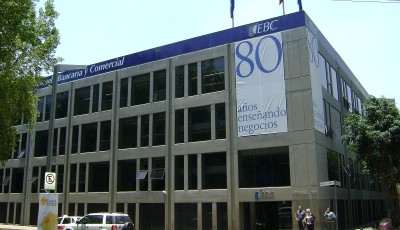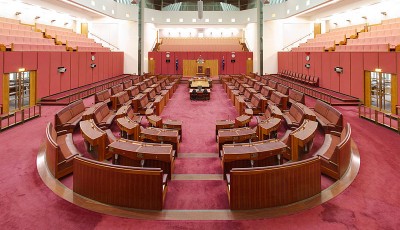Australian senate committee continues inquiry on digital currencies
 It’s not just outlawed biker gangs and other hardened criminals using digital currencies for illicit activity. “Mums and dads” are also using them to purchase illicit narcotics and synthetic drugs, according to testimony by the Australian Crime Commission at the senate inquiry on digital currencies, reported the Sydney Morning Herald.
It’s not just outlawed biker gangs and other hardened criminals using digital currencies for illicit activity. “Mums and dads” are also using them to purchase illicit narcotics and synthetic drugs, according to testimony by the Australian Crime Commission at the senate inquiry on digital currencies, reported the Sydney Morning Herald.
“…You are seeing large volumes of mums and dads purchasing illicit commodities over the internet and we’re seeing organised crime groups such as [outlaw motorcycle gangs] in recent media reporting using bitcoin as a standard way to move value,” said Dr. John Moss, national of intelligence at the Australian Crime Commission, at a meeting of the senate inquiry on Wednesday.
Apparently surprised by Moss’s statement, Nationals Senator Matthew Canavan asked him to confirm that “mums and dads” were indeed buying illicit goods using digital currencies and the types of goods and services they were obtaining, reported the Herald.
“The primary detection is around narcotic importation [and] new synthetic drugs,” Moss said. Asked for further evidence from Fairfax Media, Moss said he was talking about “everyday” Australians using Bitcoin for illicit activity. “Clear evidence of this can be seen by the nature of illicit drug purchases from illicit marketplaces on the dark-net,” he said.
The Herald reported that law enforcement agencies have told the inquiry that cryptocurrencies being used for illicit activity were making their investigations into criminal matters more challenging.
“The main challenge for the [Australian Federal Police] operationally is the anonymity associated with bitcoins and the lack of regulation,” stated Jarred Taggart, team leader of the Australian Federal Police’s Criminal Asset Confiscation Taskforce, who noted there was a real challenge in determining the actual owners of Bitcoins and other cryptocurrencies.
“So…while [that] may not be something that is a significant issue for us at the moment, it’s more in the future space where things like this, if there were predictions that say [these currencies] may become more popular and more user friendly, [then] that could become an issue if there wasn’t an ability for us to understand the true ownership behind bitcoins,” Taggart said, as reported by the Herald.
It’s not only digital currencies that are preventing investigations, said Hamish Hansford, national manager of strategic intelligence and strategy at the Australian Commission, to the inquiry.
“I think it’s fair to say that across a whole range of different areas it’s becoming more and more difficult to investigate and prosecute crime and this is just another type of encryption…on a whole range of different areas,” said Hansford, noting the use of encrypted ways of communicating and the use of “darknets,” which make it challenging to identify offenders.
“So the way in which law-enforcement responds to a digital currency issue needs to change over time and…it’s becoming more difficult to investigate with the higher levels of encryption,” Hansford said.
The Herald reported that Daniel Mossop, director of the Attorney-General Department’s financial crime section, told the inquiry that it was important to try to regulate digital currencies in a manner that did not “stifle their growth.”
“We do realise that there is a range of useful and worthwhile purposes for digital currency,” said Mossop. “It obviously has…the ability to vastly increase the financial inclusion for people who are currently unbanked [without bank accounts]. It’s [also] a relatively cheap and effective way for people to hold and store value and more it around easily…with relatively limited feed. So it’s something that we would like to see used in a positive way but also in a way where we can try and mitigate those risks [of criminal activity occurring with their use].”
Kate Preston, who is the general manager for the Australian Treasury Department’s Revenue Group, also testified before the inquiry hearing Wednesday, stating that the current tax treatment would suffice while digital currencies are still in their “infancy,” reported ZDNet.
“I would say that we have no issues with the way that the ATO (Australian Taxation Office) has dealt with it,” said Preston. “I think we will continue to assess the environment, but I would stress that it is an industry, if you like, that is in its infancy.”
Preston added, “To jump in and suggest there should be changes to the tax law to accommodate it is a little bit early in that process.”
ZDNet reported that Preston was responding to comments made by committee chair Labor Senator Sam Dastyari, who asserted that local Bitcoin companies are likely to move offshore in order to get around the ATO’s current tax regime for cryptocurrencies.
Last summer, the ATO published its guidance on the taxation treatment of digital currencies in Australia, treating Bitcoin and other cryptocurrencies in the same manner as barter transactions with similar taxation consequences, unless it is for business purposes.
The treatment of digital currencies as a commodity rather than as a currency effectively sees it double taxed: when it’s sold and again when it’s bought. It is a treatment that Australians who work with Bitcoin have said is already pushing some business to move their operations overseas, said ZDNet.
“It could result in driving the digital currency business that [are] emerging in the sector offshore and potentially underground,” said Ronald Tucker, chairman of the Australian Digital Currency Commerce Association, told the committee last November.
But Preston stated Wednesday that any changes made to the Australian government’s approach to digital currencies should start with its regulatory or legislative framework, rather that its taxation treatment. “The Treasury view would be that, taxation is not where you start.”
ZDNet reported that Brett Peterson of the ATO’s Tax Council Network told the committee that under the present definition of the term “currency” in the taxation laws, if another nation unilaterally adopted Bitcoin as its official fiat currency, then it could be treated locally as foreign currency and taxed appropriately. “But that’s not a new notion,” Peterson said.
The news outlet also reported on comments from Australian National University professor Rabee Tourky, who suggested the Australian government would be better off issuing its own official digital currency as the nation moves toward a cashless society.
“In 10 years’ time, there won’t be any paper cash,” Tourky said. “The big questions is what’s going to replace it in Australia? Will it be bitcoin? I don’t think so. Most likely, it will be ‘AusBit’, an Australian government-issued digital cash. It’s quite clear that the central bank in Australia is going to have to issue electronic cash.”
But in echoing Preston’s comments, Tourky warned that sound infrastructure would need to be developed before the government could start treating digital currencies like cash.
“Before we start discussion [about] things like taxation on digital currencies, we need infrastructure around it, “said Tourky to ZDNet. “I don’t think we’ll see infrastructure emerging around bitcoin that will be stable. [But] I have absolutely no doubt that in the foreseeable future, we will see a government-issued digital currency.”
Bitcoin “guru” Andreas Antonopoulos also appeared before the committee Wednesday to make the case for Bitcoin. As reported by CoinDesk, he said Bitcoin’s unique architecture and payment mechanisms have significant implications for network access, consumer protection, regulation, innovation, privacy and individual empowerment.
“Bitcoin can introduce much needed competition in the retail payments industry, undercutting the expensive systems offered by credit and debit cards, whilst significantly improving security and privacy for consumers,” Antonopoulos said.
He added that “the bitcoin industry can establish Australia at the forefront of the next wave of innovation of financial services. A wave that can extend financial services to more than two billion people throughout Southeast Asia, who are currently unbanked.”
Australia is already home to a thriving Bitcoin industry, said Antonopoulos, who talked about its potential to “become a leader in the region and the world.”
As reported by CoinDesk, he compared the centralized banking system to Bitcoin’s decentralized offering, highlighting Bitcoin’s security levels.
“If a bad actor infiltrates a traditional financial network, the network itself and all of its participants are at risk. In contrast, if a bad actor has access to bitcoin network, they have no power in the network itself and they do not compromise trust in the network.
Antonopoulos added, “Contrary to popular misconception, bitcoin is not unregulated. Rather, several aspects of the bitcoin network and financial systems are regulated by mathematical algorithms. The algorithmic regulation in bitcoin offers predictable, objective, measurable outcomes.”
He concluded, “Algorithmic regulation provides certainty without nationalist or geopolitical influence. In a time of unprecedented currency wars, mathematical neutrality is a save haven.”
Images: File photos













